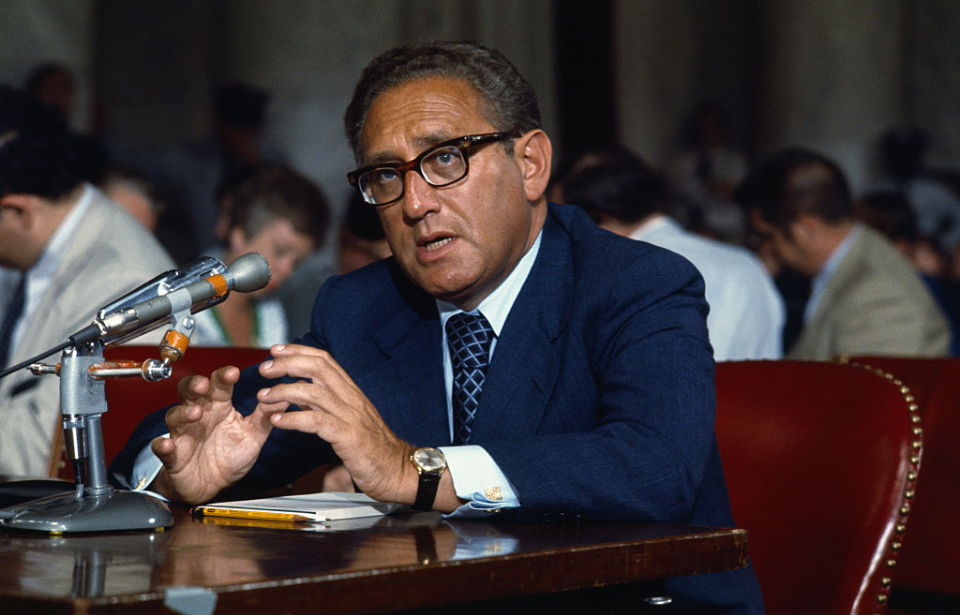Depending on who you ask, Henry Kissinger is either a revered political figure or a war criminal. Serving as national security advisor during the Nixon administration, he played a pivotal role in several conflicts and the direction of America’s diplomatic interests. His death in November 2023 led to a resurgence in the discussion regarding his legacy, with both sides sharing their thoughts on his actions.
Henry Kissinger immigrated to the United States from Germany
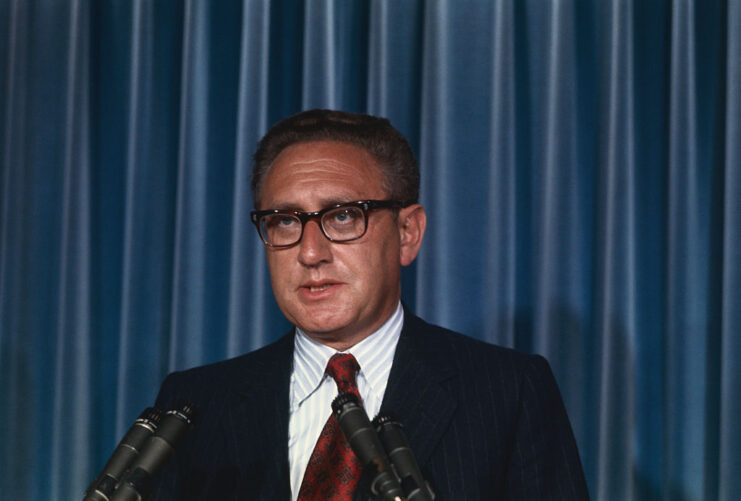
Henry Kissinger was born Heinz Alfred Kissinger on May 27, 1923, in Fürth, Bavaria. The son of a German-Jewish family, he was among those to face oppression following the rise of the National Socialist German Workers’ Party. He was regularly harassed by Youth members and was unable to attend secondary school.
In August 1938, Kissinger and his family fled Germany, briefly arriving in the United Kingdom before settling in New York City. His family settled in a German-Jewish neighborhood in Manhattan, where he attended high school.
Drafted into the US Army during the Second World War
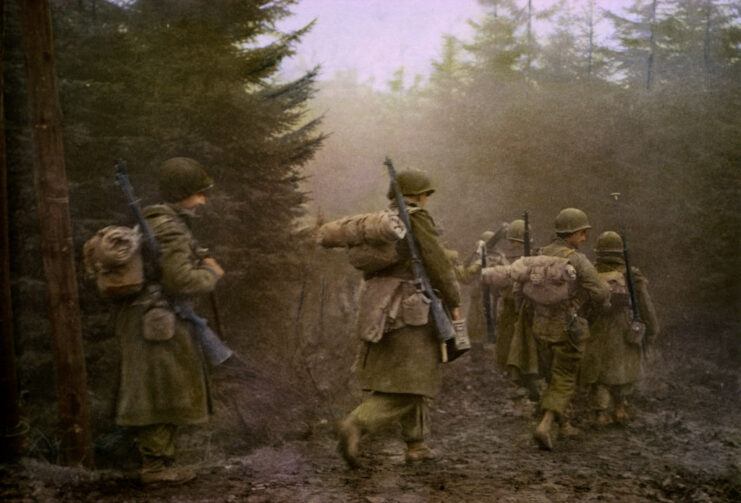
In early 1943, Henry Kissinger was drafted into the US Army and sent to Camp Croft, South Carolina to undergo basic training. While initially sent to Pennsylvania under the Army Training Program, he was reassigned to the 84th Infantry Division upon it being canceled. It was during this time that he met Fritz Kraemer, who arranged for him to be assigned to military intelligence, due to his ability to speak German.
Kissinger was eventually sent to the European Theater, where he saw action during the Battle of the Bulge. In April 1945, he was involved in the liberation of Hannover-Ahlem, a subcamp of the Neuengamme concentration camp. This had a profound impact on him, with the future politician writing in his journal, “I had never seen people degraded to the level that people were in Ahlem. They barely looked human. They were skeletons.”
As the American forces continued their advance into Germany, Kissinger was put in charge of establishing an administration of the town of Krefeld, which he successfully did. This was followed by an assignment with the Counter Intelligence Corps (CIC), a job that saw him charged with tracking down members of the Gestapo. Not long after, Kissinger was named the commandant of the CIC detachment in Bensheim.
With the end of the Second World War, Kissinger was sent to the European Command Intelligence School at Camp King, Taunus, where he remained following the completion of his military service. Of his time in the Army, he later said it “made me feel like an American.”
Making a name for himself back in the United States
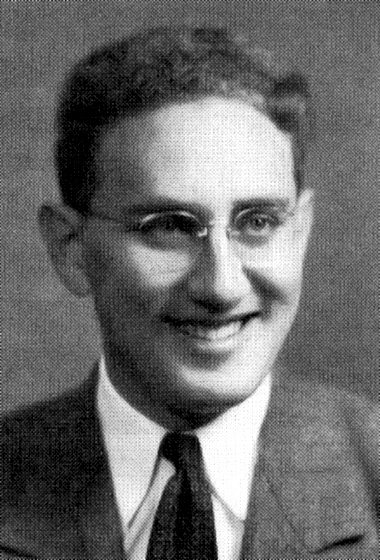
Using the benefits afforded to him under the GI Bill, Henry Kissinger attended Harvard University, graduating in 1950 with a Bachelor of Arts in Political Science. He followed this up by getting his Masters and Doctorate, eventually being hired on as a professor of government at the post-secondary institution.
It was during this time that Kissinger became renowned for his expertise regarding both foreign policy and nuclear weapons. This allowed him to consult with a number of think tanks, organizations and government agencies. He also worked on the presidential campaigns of Richard Nixon and Nelson A. Rockefeller.
Henry Kissinger played a major role in Cold War-era foreign policy
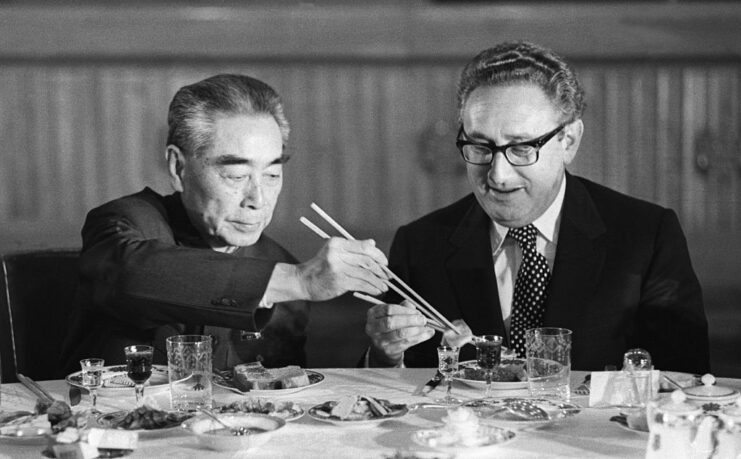
Henry Kissinger served under two administrations: Richard Nixon and Gerald Ford. It was with the latter that he had an unusual relationship, with the pair becoming close. The reason for this, according to some, was that the pair shared a habit of keeping the majority of things a secret. They also preferred “backchannel” negotiations.
Kissinger based his foreign policy on the concepts of realpolitik and détente. The former is a way of working diplomatic and political policies based on the circumstances at the time, rather than an ideology, while the latter is geared toward lessening tensions between two nations.
It was through détente that Kissinger was able to lessen tensions between the United States and both the Soviet Union and China. His work with the latter, in particular, is believed to have helped temper the country’s rise, both economically and militarily.
Operation Menu: the carpet bombing of Cambodia
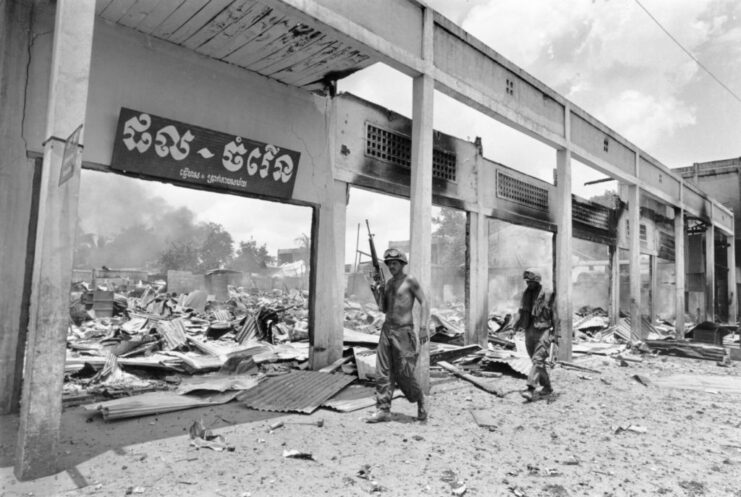
One of the events to tarnish Henry Kissinger’s political legacy was the carpet bombing of Cambodia during the Vietnam War. The nation was neutral, but the North Vietnamese and Viet Cong were using it to erect bases outside of the war zone. The idea for the operation over Cambodia was favored by President Richard Nixon, and Kissinger initially worried he hadn’t considered what the diplomatic implications would be.
He later changed his tune and became the chief architect of what became known as Operation Menu. Beginning in February 1969 and ending in April the following year, Kissinger, while on paper stating the targets were the pro-Communist forces, ordered his troops to hit “anything that flies or anything that moves” – basically, the bombings were conducted indiscriminately.
Throughout the operation, the American forces conducted 3,630 flights and dropped approximately 110,000 tons of bombs. This was followed by a ground invasion, with Nixon claiming the move was to protect American interests during the withdrawal from South Vietnam. Unable to destroy the Ho Chi Min Trail, the US withdrew, but not without leaving an impact. The Cambodians, in interacting with the Americans, overthrew their government, leading to the rise of the Khmer Rouge.
The first bombing campaign was followed by another that occurred until August 1973, five months after the US forces had left Vietnam. An estimated 100,000 more Cambodian civilians were killed, while another two million were left homeless.
For his involvement in the carpet bombing of Cambodia, Kissinger was deemed a war criminal by many. It was illegal to launch an attack on the country, given its neutral stance, and many were later struck by the irony that he would be awarded the Nobel Peace Prize in 1973 for trying to negotiate an end to the Vietnam War. What’s more, there had been attempts to hide it from the American public, as both Nixon and Kissinger knew it would lead to backlash.
Henry Kissinger’s further service with the Nixon administration
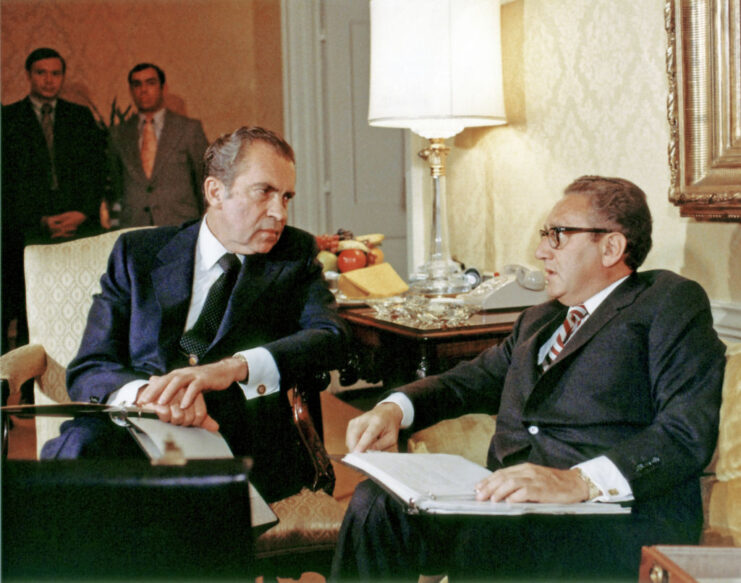
While the Vietnam War was the biggest conflict to occur during Henry Kissinger’s time as national security advisor and, later, secretary of state, it wasn’t the only one. During the Bangladesh Liberation War between the US-backed East Pakistani and Bangladeshi forces, he and Richard Nixon ignored claims by the US Consul General of East Pakistan Archer K. Blood of the “selective genocide” of the intelligentsia, the Hindu minority and those who supported an independent East Pakistan.
The conflict saw the deaths of 300,000 citizens in East Pakistan and 10 million more flee to India.
In 1973, Kissinger failed to show compassion for the plight of the Jewish population in the Soviet Union, calling their persecution not of interest to American foreign policy and, instead, “maybe a humanitarian concern.” He also disliked American Jews for their calls to aid those in the USSR, and went so far as to say, “If it weren’t for the accident of my birth, I would be antisemitic.”
After Nixon fired William Rogers as secretary of state, Kissinger was given the job. He chose to keep the US president in the dark upon the outbreak of the Yom Kippur War, with the country’s inactivity, outside of airlifts to Israel, leading OPEC to implement an embargo against the United States. It was only after a United Nations-sanctioned ceasefire that he began “shuttle diplomacy” missions.
Out goes Richard Nixon, in comes Gerald Ford
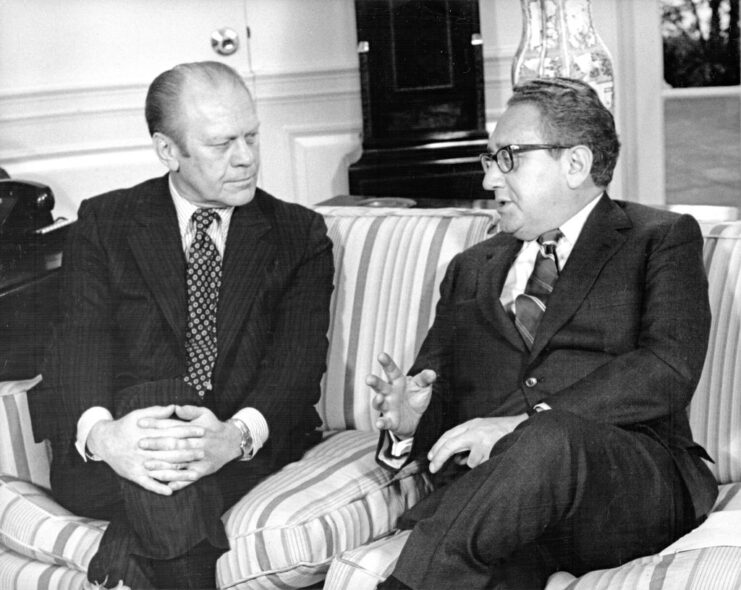
Following the Watergate Scandal, Gerald Ford was sworn in as president of the United States. Under his administration, Henry Kissinger saw his influence greatly reduced. That being said, he still played a pivotal role in Indonesia’s invasion of East Timor. The Indonesian forces were supported by the Americans, who feared that, in the aftermath of the Vietnam War, Timor’s leftist government would turn to Communism. Over 100,000 East Timorese lost their lives in the conflict.
Later into Ford’s presidency, Kissinger was removed from his role as national security advisor. When Jimmy Carter won the 1976 presidential election, he also left his position as secretary of state.
Henry Kissinger never fully left American politics
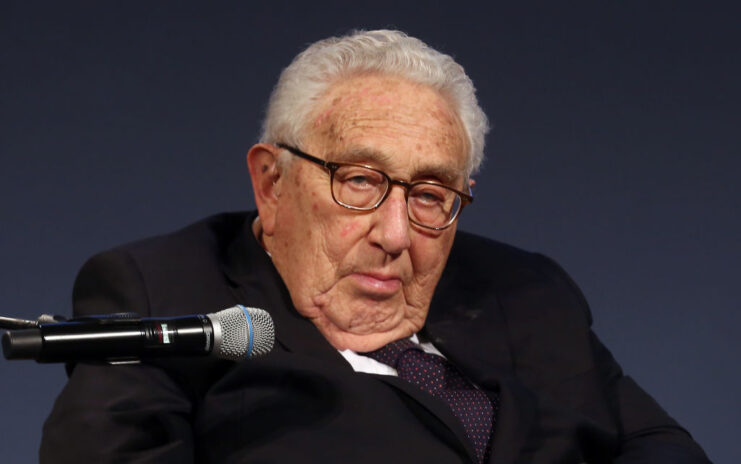
Following his time in office, Henry Kissinger continued to be involved in politics. He kept working alongside sitting presidents on a consulting basis, going on to establish the consulting firm Kissinger Associates in 1982.
Following the 9/11 attacks, President George W. Bush appointed Kissinger to chair the National Commission on Terrorist Attacks Upon the United States. However, he only remained in the role for a few months, as he refused to disclose his business client list when asked. Kissinger was a supporter of the Iraq War and was reported to have been asked by Bush and Vice President Richard Cheney to provide advice on America’s strategy in the conflict.
While many presidents held Kissinger in high regard, not everyone thought positively of him. Former President Barack Obama once commented that he spent the majority of his time in office fixing what world Kissinger had left behind after leaving politics.
More from us: MoH Recipient Larry Taylor Disregarded a Direct Order and Saved a Four-Man Reconnaissance Team
On November 29, 2023, Henry Kissinger passed away at his home in Kent, Connecticut, at the age of 100.
